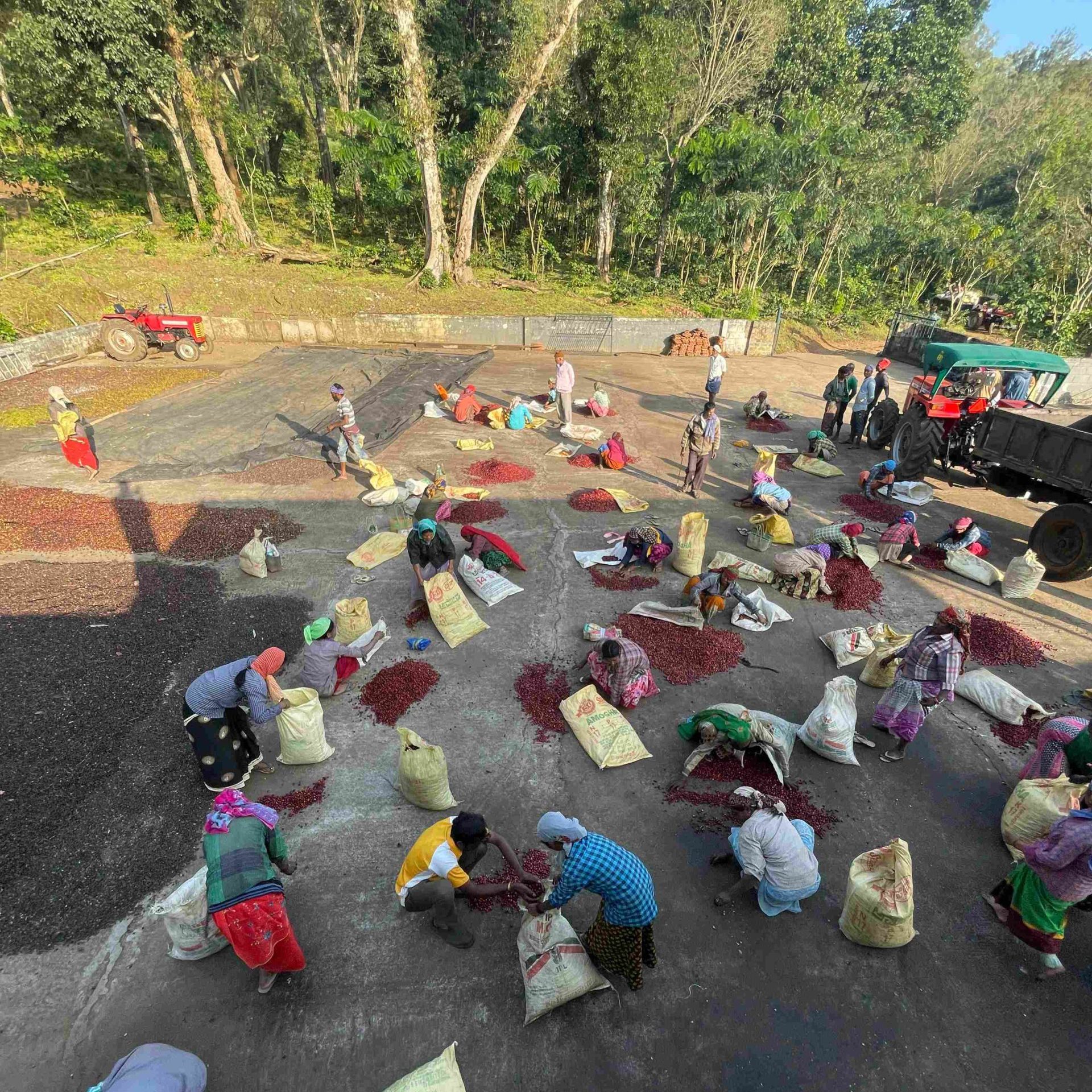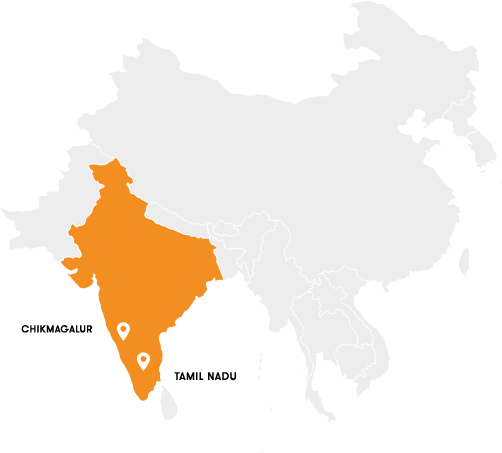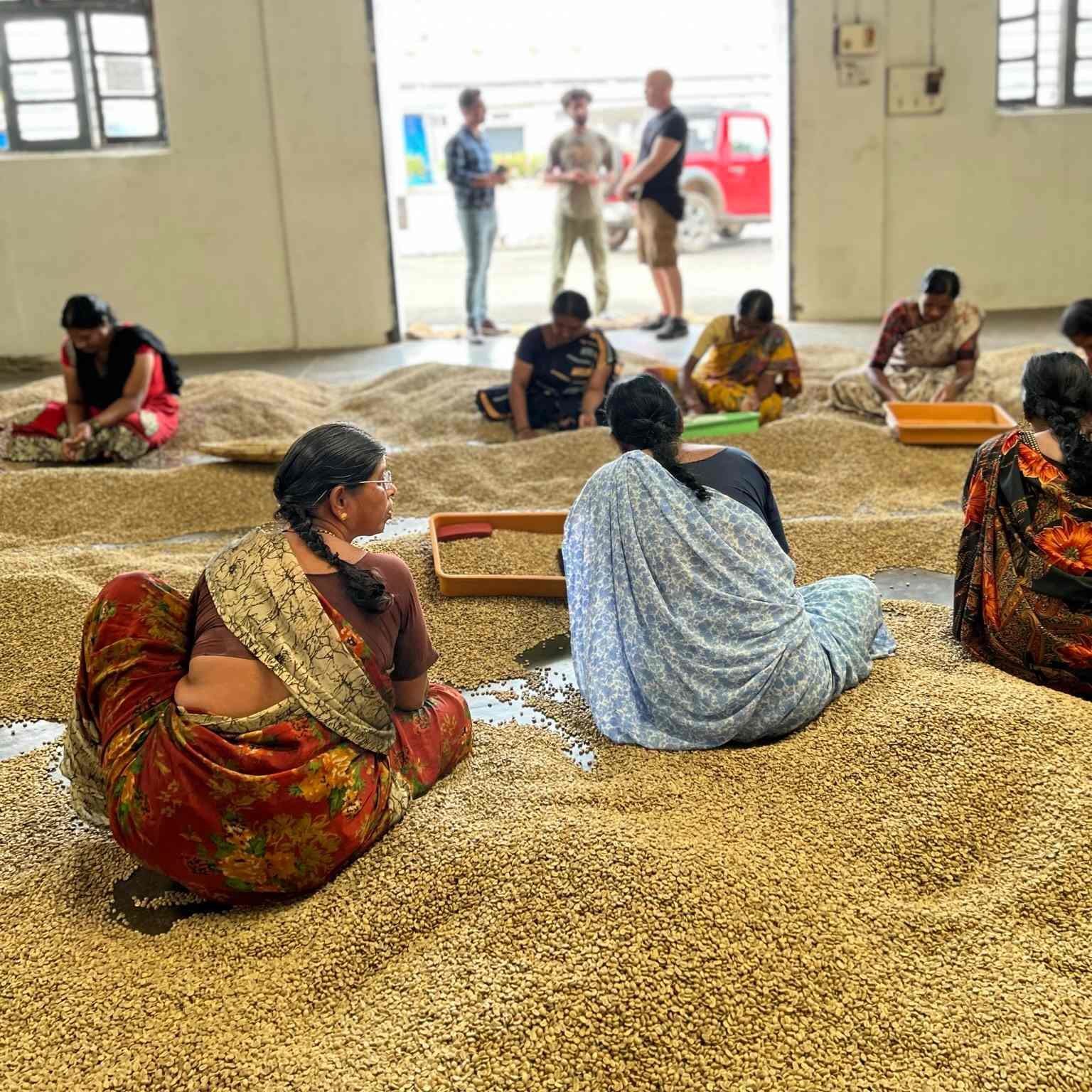
India and its history of coffee cultivation
India has been one of the world’s major producers of coffee for a long time – since the days of the Mughal empire, some 200 years before tea was introduced under British colonial rule.
The well-known legend of coffee’s arrival in India has it that 16th century Sufi saint, Baba Budan, so enthused by coffee when travelling through the Middle East during his Hajj, smuggled seven coffee beans from Yemen (supposedly hidden in his beard) and planted them in Chandragiri, a hilly region located back in his home state of Karnataka.
Today, this area is known as Baba Budan Giri (literally, ‘Baba Budan Hills’) and India is now the third-largest producer and exporter of coffee in Asia, and the sixth-largest producer in the world.
In terms of quality, India offers significantly more than the famed Monsooned Malabar and commercial grade Robusta that many associate coffee from this country with. Some of the world’s most biodiverse coffee farms are to be found here, with shade provided by long-established indigenous tree canopies. With the combination of these excellent growing conditions and the relatively recent focus on high quality processing, we are now beginning to see some of the most exciting Asian specialty coffees emerging from here.
Coffee is traditionally grown in the Western Ghats, an epic mountain range spread over Karnataka, Kerala and Tamil Nadu. Karnataka is by far the largest producing area, accounting for about 70% of the total coffee production, with Kerala and Tamil Nadu accounting for around 23% and 7% respectively.
The majority of Indian coffee is exported, providing a significant contribution to the Indian economy among other plantation crops. Over a million people are involved in the Indian coffee industry, with around 250,000 farmers working on over 52,000 coffee plantations – the vast majority of whom are ‘small growers’ (around 85%) working with less than 10 acres. Around 60% of coffee grown in India is Robusta, with the remaining 40% Arabica and some Excelsa. Indian Robusta is particularly favoured for its superior mixing qualities, adding depth and finish, especially for espresso blends.

Partners
We are honoured to be working with Ekata, an inspirational team of coffee professionals who share a love of coffee and an ambition to take Indian specialty coffee to the world.
Comprised of seven childhood friends from Kerala, Ekata started in 2016 with a mission to see single origin, shade grown coffee in biodiverse terroir processed to international standards of quality. With the Western Ghats being the birthplace of coffee in India and an ideal place to grow coffee in terms of climate and terroir, the team began to focus their efforts working with farmers here.
Since the 2018 floods in Kerala and the growing understanding of Western Ghats’ impact on the climate in Kerala (as well as the rest of the world), Ekata have become increasingly passionate advocates of organic coffee production.
Ekata’s long term vision is to see all coffee production in the Western and Eastern Ghats becoming organic; they view specialty coffee production as the gateway to achieving this. They work closely with farmers to focus on improving quality through attention to processing and then, over time, transferring to organic practices. They see sustainable agroforestry and organic farming as being integral to the health of the Western and Eastern Ghats and ultimately to the health of the planet.
Ekata’s passion for innovation in processing methods, their experimentations with anaerobic fermentation and coffee cherries being fermented with other fruits have created some of the most exotic flavour profiles we’ve ever experienced.

